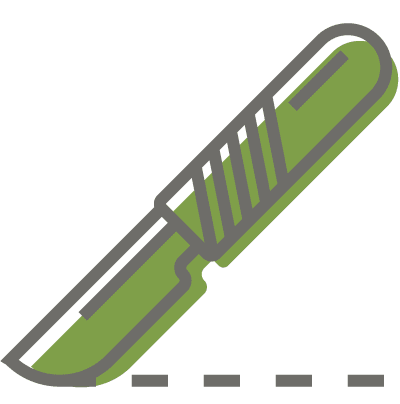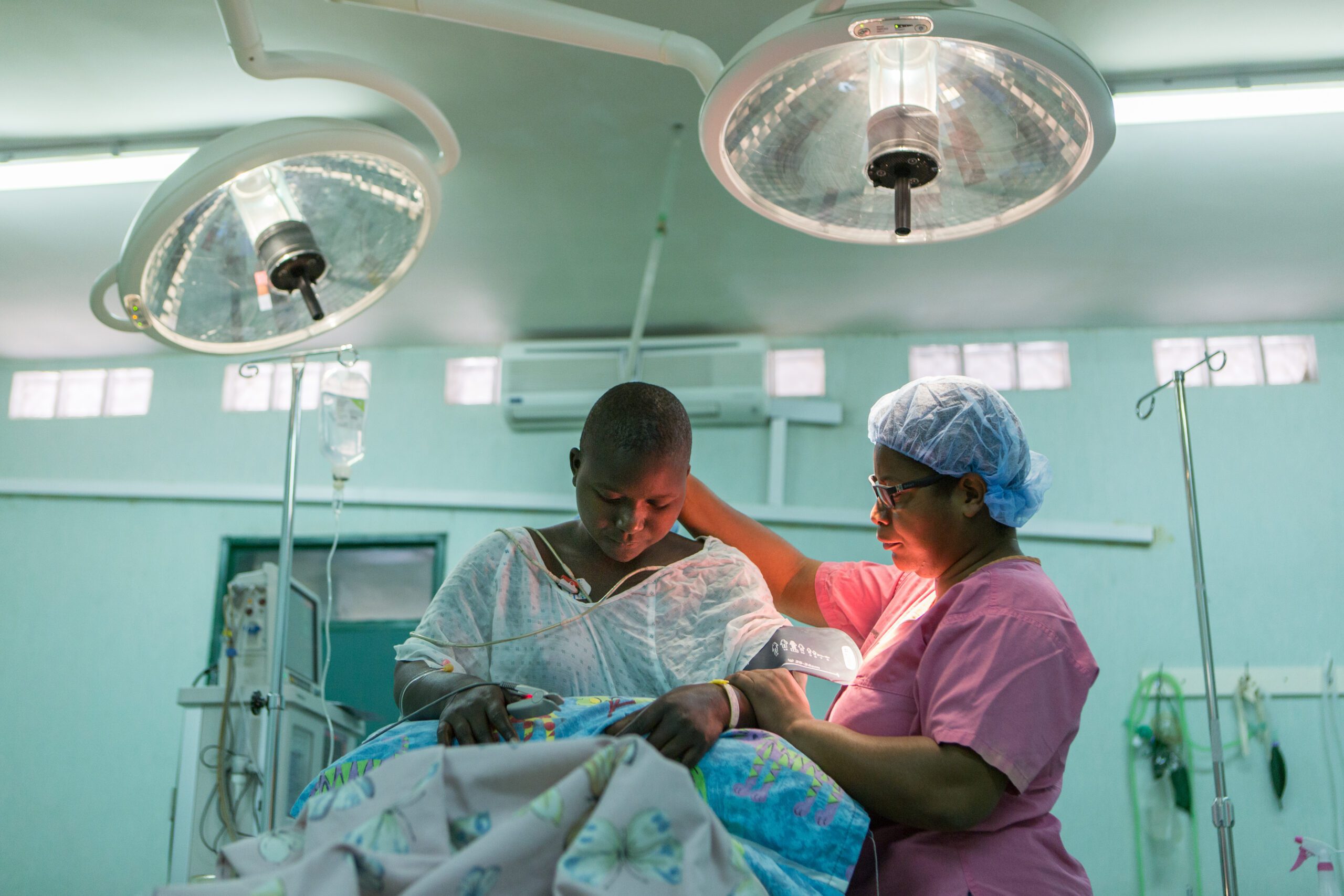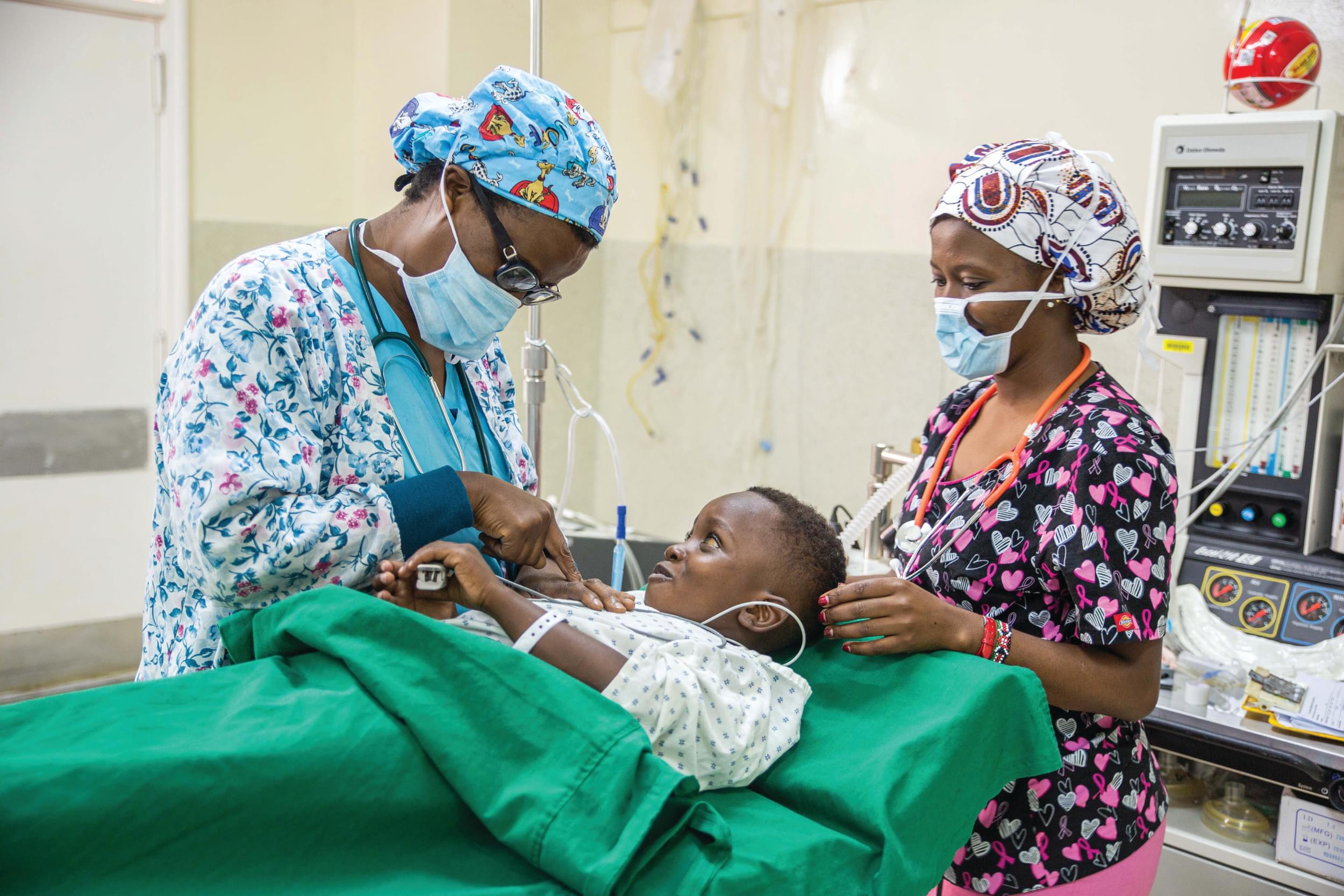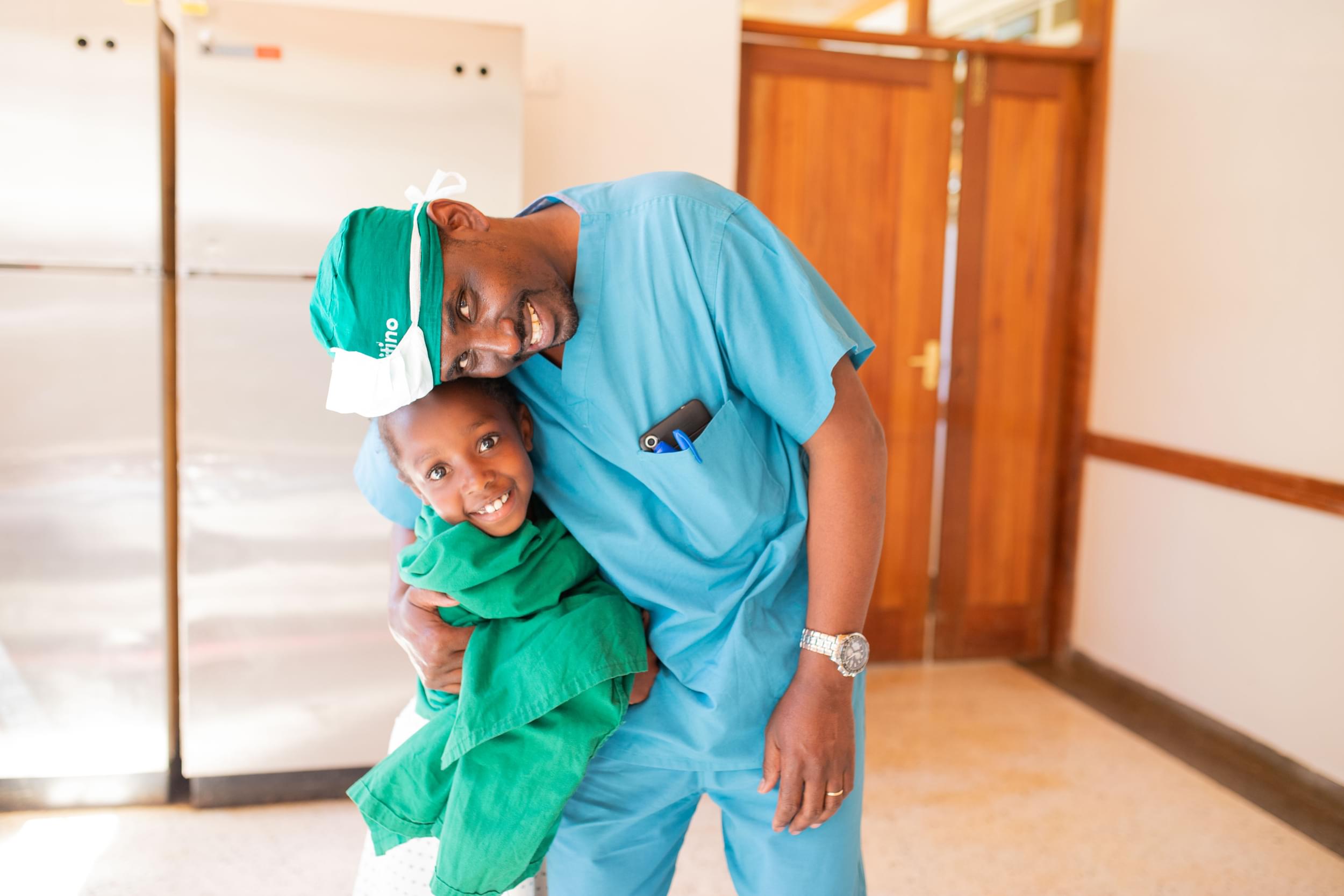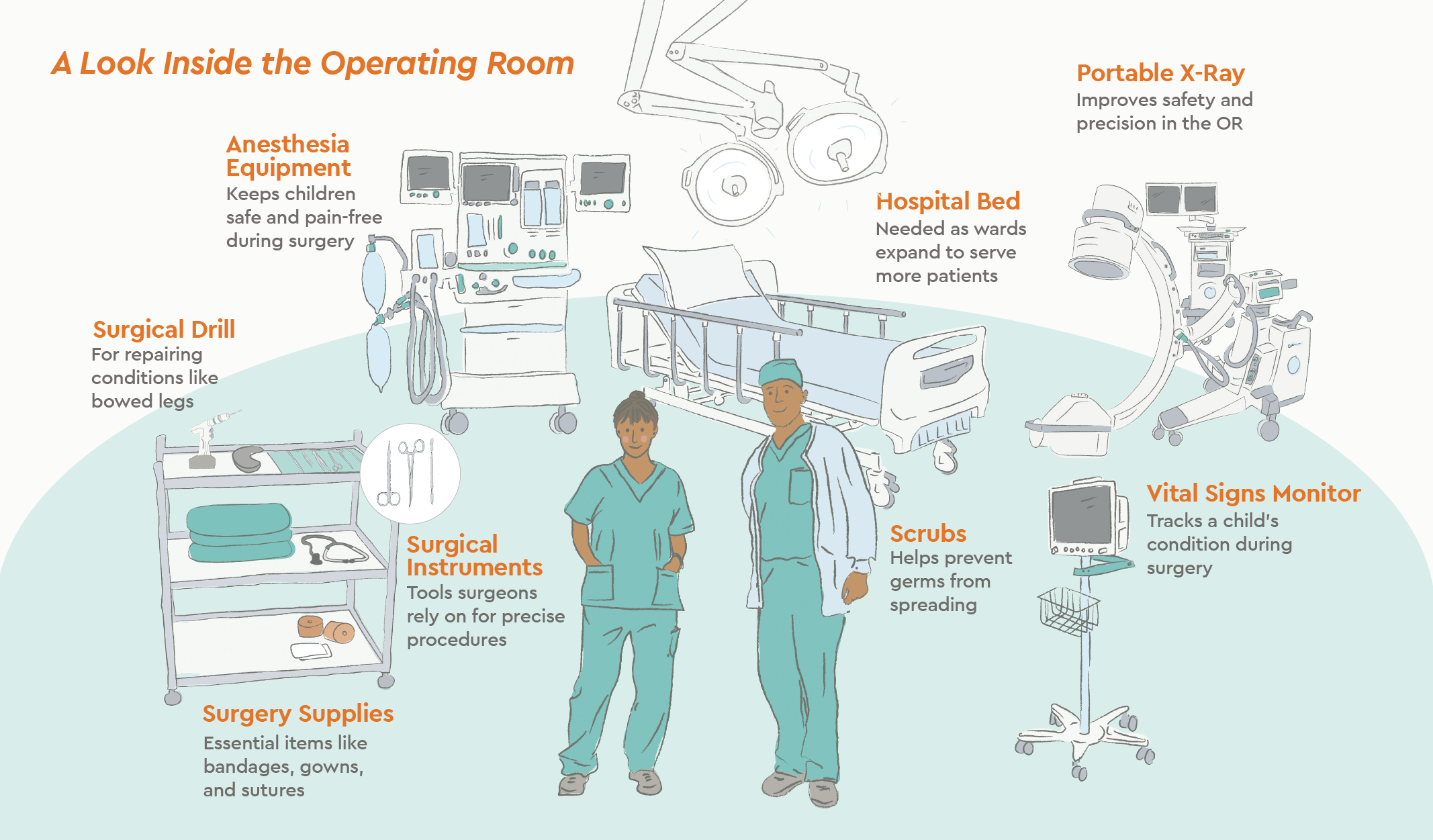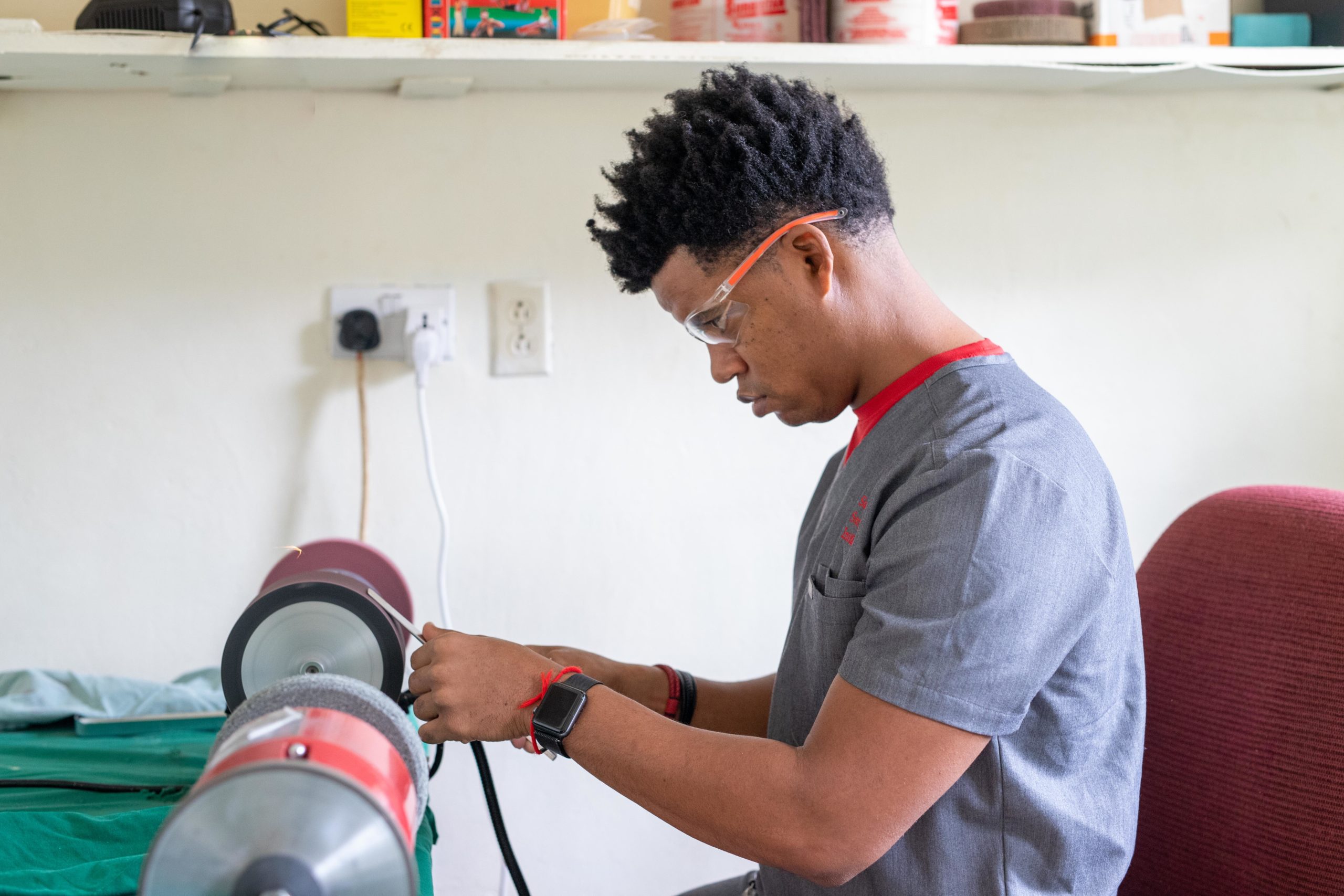
“If we can improve the efficiency of the OR, it is possible to save more lives.” Keith Miles, Executive Director of Safe Surgery Initiative.

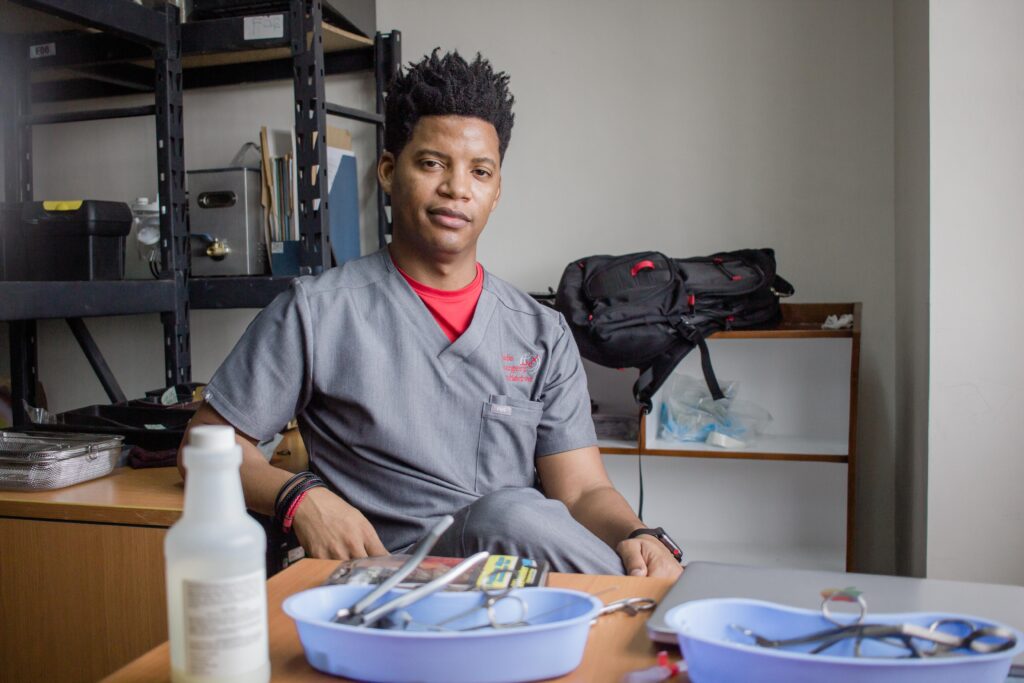
When you think about surgery, probably the first thing that comes to your mind is: “Is this safe? Is my child going to come out alive? What are the health implications of this particular procedure? Does the doctor know what he/she is doing?” It is not any different for the mums and dads who bring their children to CURE. They always seek to be reassured that their child is going to be okay and that the operating room is a safe place.
Is the OR really safe? This blog will help us answer this question and let you know how CURE has partnered with Safe Surgery Initiative (SSI) to ensure safety for all our patients who undergo surgery. Safe Surgery Initiative (SSI) is a US-based nonprofit organization that provides on-site surgical instrument refurbishment, capacity building, and education to medical facilities in low-income and middle-income countries. On a daily basis, hospitals, clinics, and non-profit organizations are saving the lives of individuals in impoverished countries by providing surgical services. Due to logistics and limited resources, however, many of these facilities do not have trained technicians to perform maintenance on their equipment.
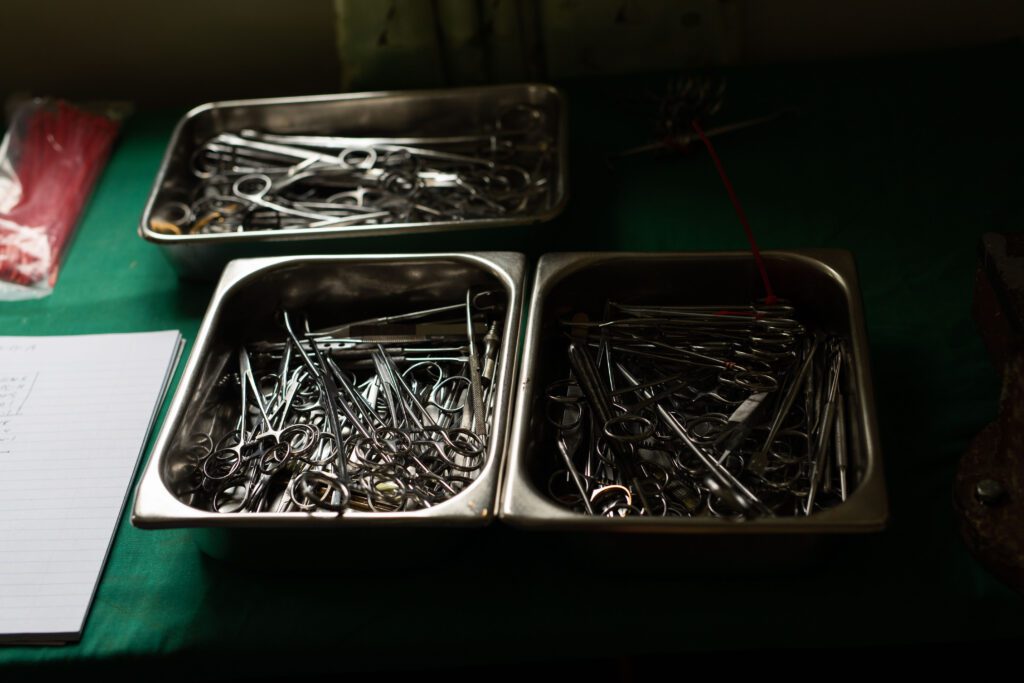

Being speciality hospitals and focusing on orthopedics and neurosurgery, most of the procedures performed across the CURE network are surgical. Over 40 surgeries are done across the CURE network every single day. Imagine if 50% of these surgeries were not able to be completed in good time or at all due to faulty equipment. These children with disabilities would never get the help they need and never have the opportunity to realize their full potential.
At CURE, surgical procedures are intended to make the lives of children with disabilities easier and better. Let’s take a look at what happens when surgical equipment doesn’t work as expected. When surgical equipment does not function to the surgeon’s expectations, it slows down the entire process, which impedes the efficiency of the OR. Hence, fewer surgeries are performed in the long term. When surgical instruments are not maintained on a regular basis, the risk to patient safety increases. Broken or malfunctioning surgical tools can prolong surgical operations. Having proper working instruments can improve the success ratio per procedure. It will also limit hand fatigue and OR frustrations caused when instruments don’t cut, bite, or grasp properly while in surgery. SSI’s process can extend the life and functionality of surgical instruments, saving money that can be used for patient care. SSI’s mission is to assist in the global effort to serve those in need of surgical care.


We asked SSI’s Executive Director, Mr. Keith Miles how he found out about CURE and why he purposed to offer his help. This is what he told us: “I first heard about CURE while working in Cambodia. One of the visiting surgeons mentioned the organisation. From that conversation, I researched CURE to better understand its mission and goals to see if it aligned with SSI. After that, I contacted CURE Ethiopia to see how we could work together to improve surgical services at the hospital.” Isn’t this a huge blessing from God? Here is why: there is no provision outside the US for this kind of service. So for Miles to be willing to answer God’s call to come all the way to Africa and to CURE specifically is such a blessing!
After agreeing to partner with CURE, SSI technicians refurbished and continue to refurbish all of the surgical instruments at CURE hospitals. You are probably wondering what this involves. It basically involves inspecting surgical instruments, reengineering them so they work properly, and refurbishing them so they work better. Sometimes surgical instruments get rusty, and this can go unnoticed. This stops the proper functioning of the instruments, slowing down the entire process of surgery.
Proper maintenance of surgical instruments begins in the hospital’s CSSD – Central Sterile Service Department. This department is responsible for decontaminating, reprocessing and sterilizing surgical tools and equipment. Without a working CSSD, it is very difficult to perform safe surgery. SSI’s job therefore begins with inspecting whether the CSSD is functioning as it should. From here on, the SSI technician on the ground sets up a fully functional repair lab at the hospital. All the equipment used at the lab is usually brought to the respective hospitals from the US by the technician.
The work done by Safe Surgery Initiative is very important and the entire CURE network is privileged to have this kind of service. We thank God for Miles and the team for their dedication to improving the surgical care provided at CURE hospitals.
About CURE International
CURE International is a Christian nonprofit organization that operates a global network of pediatric surgical hospitals, which serve one of the world’s most marginalized and vulnerable populations – children with disabilities. Patients at CURE hospitals suffer from orthopedic, neurosurgical, and maxillofacial conditions that limit their mobility/functionality and opportunities for education and employment. In addition to world-class clinical service, CURE intentionally ministers to the emotional and spiritual needs of patients in its care and invests in training programs that aim to equip the next generation of health workers and strengthen national health care systems. Since inception, CURE has conducted more than 5.3 million patient visits and 330,000 surgical procedures around the world. For more information, visit https://cure.org/.


